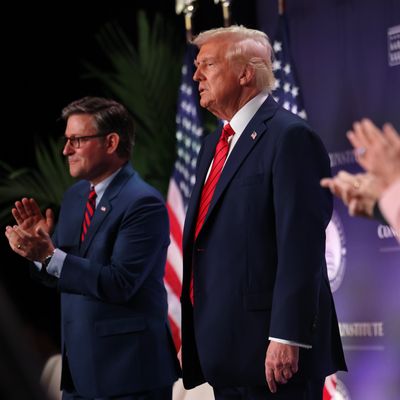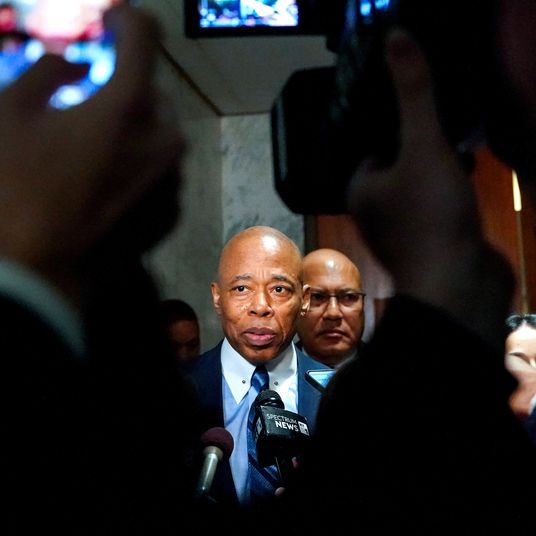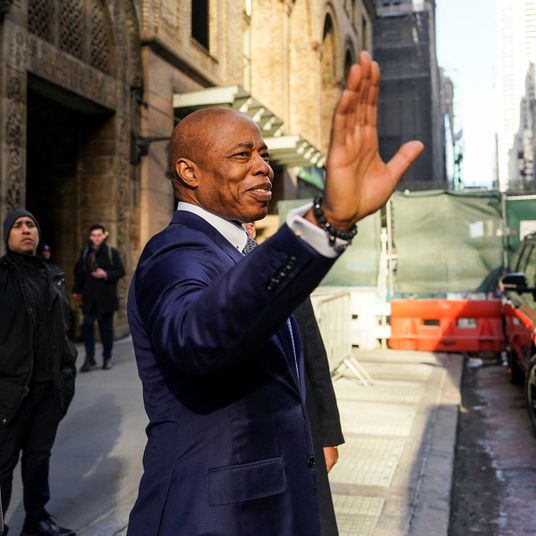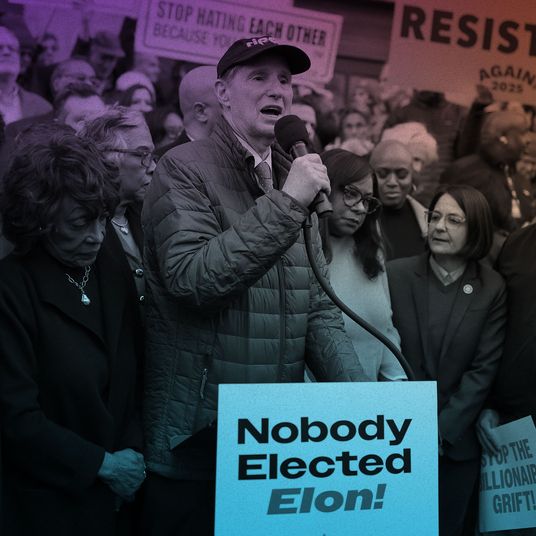
One of the most remarkable things about the current environment in
Donald Trump’s Washington is a contrast in the velocity of action between the executive and legislative branches of government. Trump himself has been firing off executive orders at a record pace (he had signed 54 as of February 6; only Harry Truman signed that many in the first 100 days of an administration). His Office of Management and Budget couldn’t even wait until its nominated director, Russell Vought, was confirmed to launch a federal funding freeze that caused nationwide panic and that is still causing widespread problems despite being rescinded and blocked by federal judges. Beyond that, Elon Musk’s DOGE is rampaging through agency after agency, killing programs, firing employees, and in general terrorizing the “deep state.” The DOGE effort is pretty clearly modeled on what Musk did when he bought Twitter, with maximum speed of disruptive actions being key to its intended impact (which is basically to chase off as many bureaucrats as possible and ring up spending reductions).
Meanwhile, at the other end of Pennsylvania Avenue, the congressional Republicans who were cackling with glee at the immense power they would wield on Trump’s behalf once they won a governing trifecta on Election Day are moving at a snail’s pace or perhaps more accurately in circles. Their most important task, as everyone understood, was to create a framework and legislative strategy for implementing Trump’s agenda via gigantic budget-reconciliation bills that could be passed on party-line votes and could not be filibustered by Democrats. There was talk of getting the ball rolling with a joint House-Senate budget resolution even before Trump was inaugurated (as Republicans actually succeeded in doing in 2017). And now? The process is in shambles.
Mike Johnson and his House GOP leadership want to enact the entire Trump agenda in one gargantuan reconciliation bill, apparently on the theory that his majority is so incredibly fragile that he’s not sure it can survive more than one high-stakes vote. Senate Republicans want two bills: one right away to pay for Trump’s mass-deportation program and to make sure the fossil-fuel industry can “Drill, baby, drill,” and another to deal with tax cuts somewhere down the road. In this, they are supported (very crucially) by much of the House Freedom Caucus, which is panting for immediate deep spending cuts and also wants to get the deportation raids revved up. The caucus has made it clear it will gleefully tank any budget bill that displeases its members.
This very basic strategic difference of opinion feeds on centuries of institutional rivalries between House and Senate, along with ideological differences between Republicans who favor some parts of Trump’s agenda more than others. But here’s the thing: Trump could resolve the debate instantly and, so far, simply won’t. During meeting after meeting with one group of congressional Republicans and then another, he dithers. He’s said he would prefer “one big, beautiful bill,” but in the next breath he makes it clear he only cares about the outcome and will leave it to his congressional allies to work out the messy details. At this point, House and Senate Budget Committees are working at complete cross-purposes and, in effect, racing to put together incompatible budget blueprints.
What’s going on here? The conventional interpretation is that Trump is just not a detail guy and is uninterested in the nitty-gritty work of giving his general (and often incoherent) policy vision flesh and bone. But as Musk races and Johnson and Thune flounder, it’s increasingly possible that holding back Congress is part of the MAGA plan. Trump is doing just fine imposing his will on the federal government by executive fiat rather than by legislation. Perhaps federal courts could rein in Musk and the DOGE Geek Kiddie Corps, perhaps not. Now that Vought has been confirmed as director of OMB, the “nerve center of the federal government,” as he calls it, he is likely very eager to test those same courts with his radical doctrine of all but unlimited presidential impoundment powers, which would make much of what Congress does on spending decisions irrelevant. Indeed, in the view from Trump’s White House, legislation may just be a fallback and only utilized when necessary.
In a long meeting with House Republican leaders on December 6, Trump seemed most interested in making sure that his foot soldiers would enact the campaign promises he made on taxes (e.g., eliminating the tax on tips and on Social Security payments). It’s worth noting that changes in the tax code really do require congressional action, unless Trump is serious in hinting that he would like to replace income taxes entirely with presidentially imposed tariffs. But again: The 47th president seems to regard Congress as a weapon to be used only when the blunt force of executive action doesn’t suffice.
You have to wonder if Trump, when he realized his party would have a trifecta, was pleased not because he would have allies to help him govern but because he could order Congress to stay out of the way as he expanded executive powers to the absolute limit. Authoritarians don’t like acknowledging the need to share power with mere legislators, even if they are subservient to the Leader. So he may be in no hurry to share power with anyone in his own party who isn’t on his payroll.
More on Politics
- Trump Cabinet Confirmation Hearings: Schedule & How to Watch
- Is Trump’s Paper-Straw Ban Really About His Shark Phobia?
- Pope Informs J.D. Vance He’s Wrong About Migrants, Christianity






























